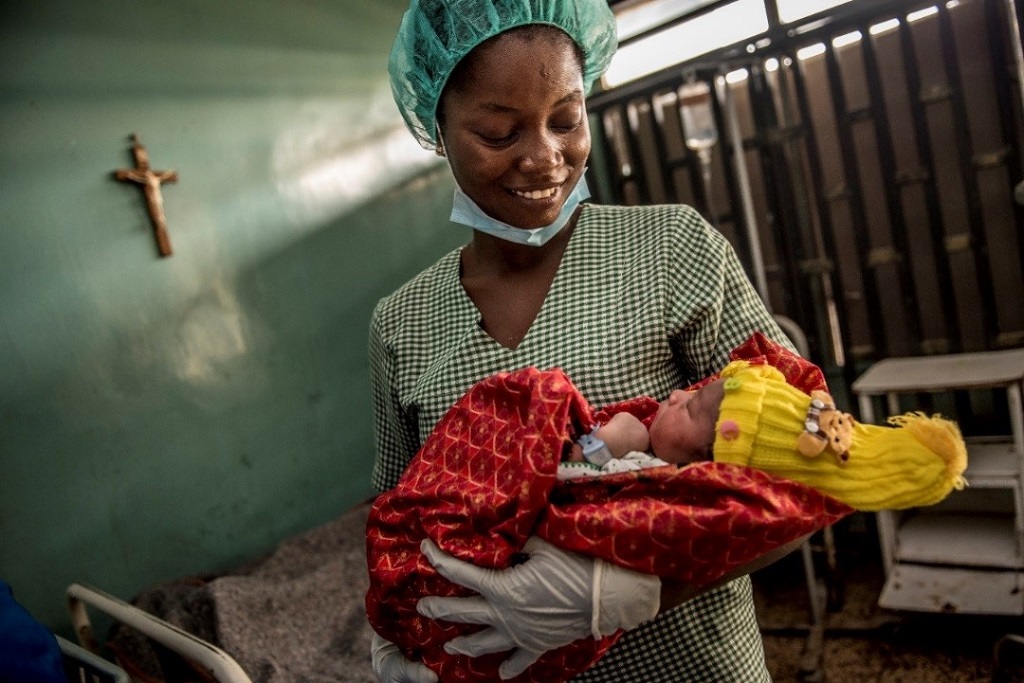In Nigeria, MCSP is improving maternal and child health by removing the obstacles that threaten access to high-quality services. At 321 facilities across two states, we’re helping providers – in training or already working – to prevent needless deaths by translating new and improved knowledge & skills into practice.
A close ally in this fight are the faith-based communities where we work. In addition to managing health clinics and training providers, faith-based organizations (FBOs) give emotional support to mothers and children during their most important health needs and milestones.
Their strong presence in Nigeria also provides a bridge for MCSP to implement change deep within local communities. By educating FBOs about maternal and child health, we’re connecting hard-to-reach women and children with the health information and services that save lives.
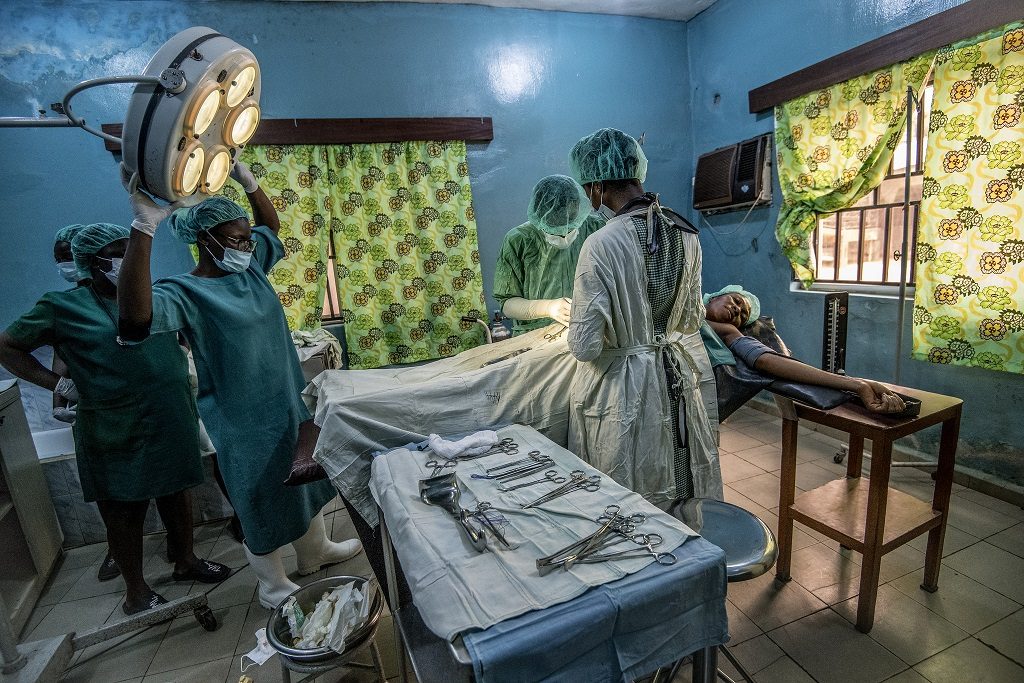
With the help of the skilled Medical Missionaries of Mary (MMM) order of nuns, Cynthia Ugorji Ngozi (above) delivers her third baby via cesarean section performed by Dr. Eze Chiemeka at Mile Four Hospital – a Catholic hospital in Abakaliki.
Founded in Nigeria in 1937, MMM nuns are trained in a wide variety of health-related fields. The Mile Four Hospital nurses and midwives pictured were trained through MCSP on skills such as comprehensive emergency obstetric and newborn care (CEmONC), and essential newborn care.
Mile Four Hospital is one of the 152 health facilities that MCSP is directly supporting in Ebonyi State to provide high-quality maternal and newborn care.
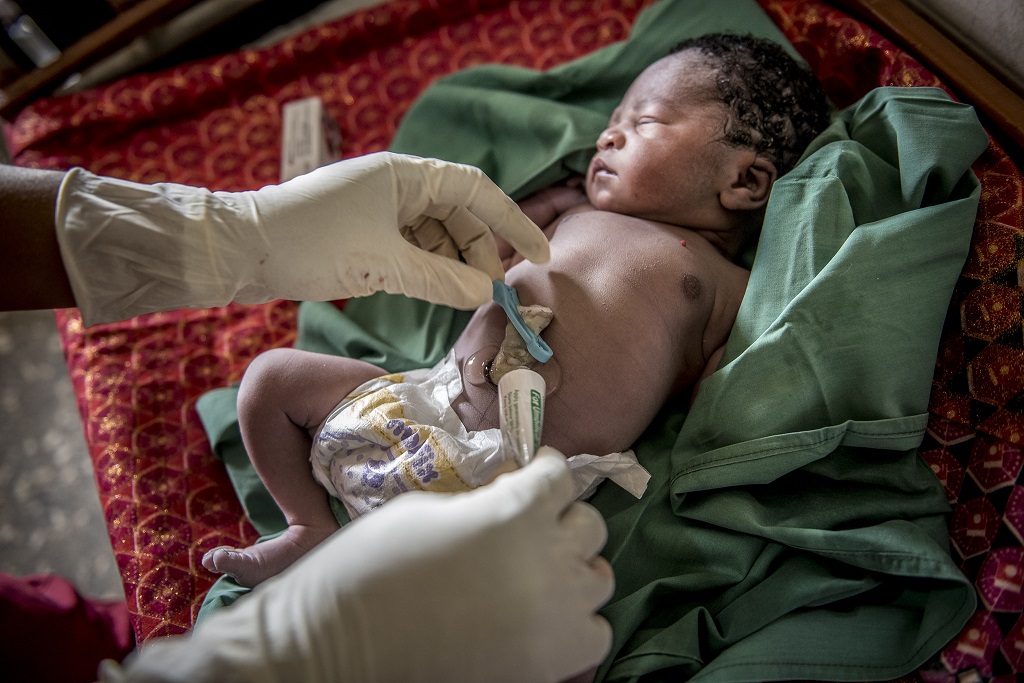
Immediately after birth, the skilled nurses tended to Ngozi’s baby and treated his umbilical cord with chlorhexidine. This low cost, antiseptic gel has proven to dramatically reduce serious infection and mortality in high-risk areas such as Nigeria. The Nigerian government is committed to a country-wide scale-up of the use of chlorhexidine with the goal of reducing preventable newborn deaths.
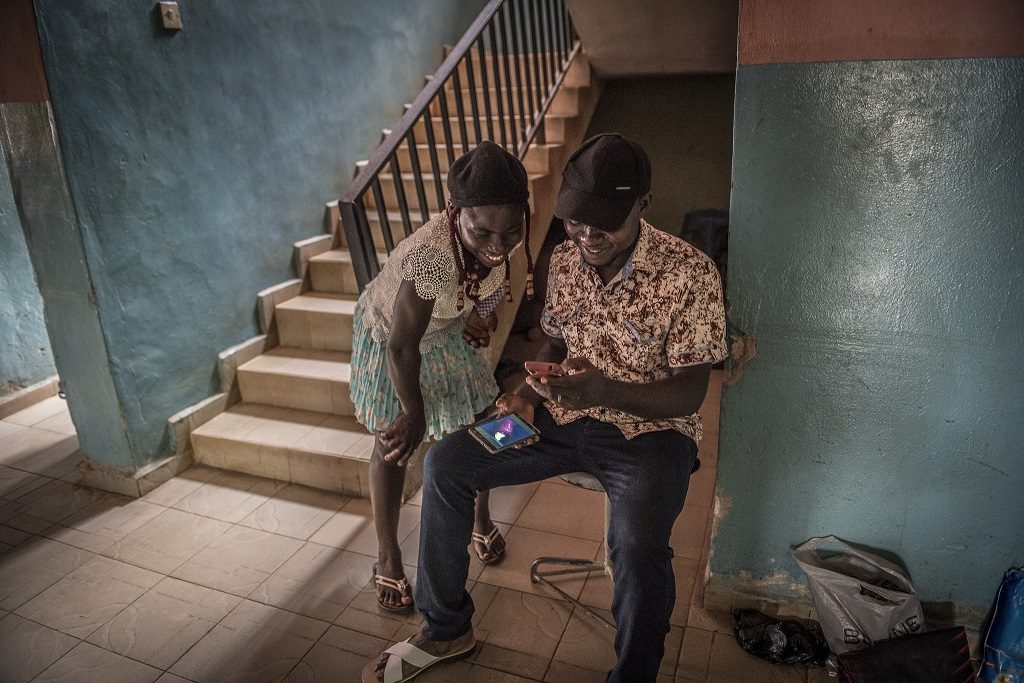
While his wife, Cynthia (pictured previously), rests after the successful birth of their third child, proud father, Chukwunonso Ugorji, shares pictures of their newborn with his sister, Ukamaka Ngwoji.
MCSP encourages male involvement during labor and delivery by orienting health workers in supported hospitals to warmly welcome male partners of expecting mothers. The Program also had curtains installed in some facilities to provide dignified care to birthing mothers, and allow them to have birth companions nearby while still maintaining some privacy, if desired.
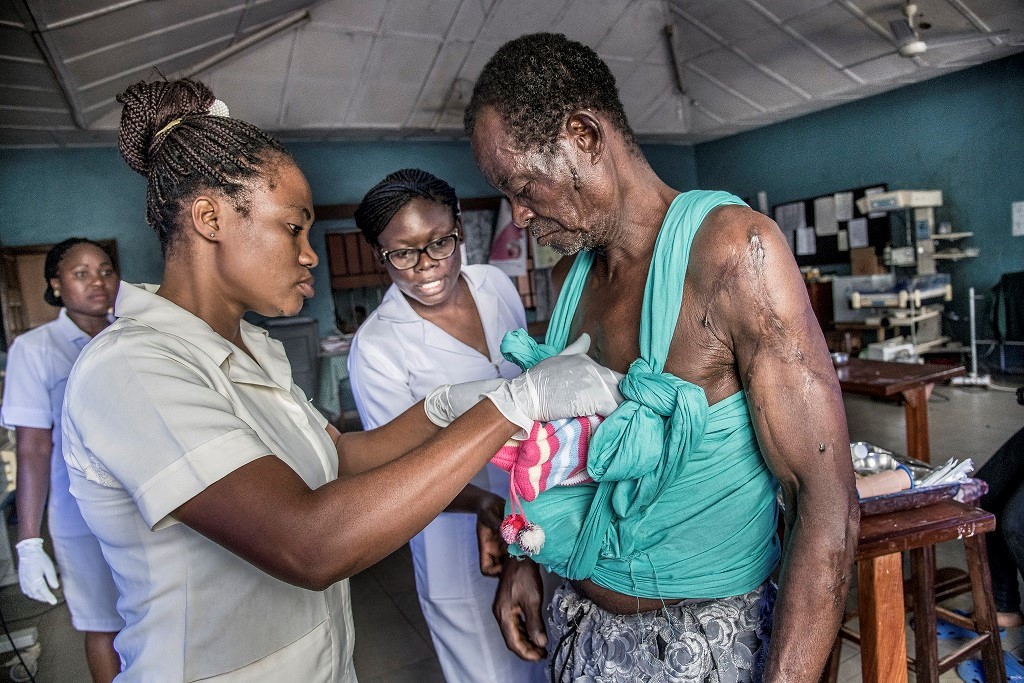
MCSP works closely with six major mission hospitals – both Catholic and Protestant – in Ebonyi State to build the capacity of staff. The Program is also institutionalizing family planning in three of these hospitals, establishing or strengthening family planning clinics at each. As a result, nonexistent or minimally available options before MCSP’s arrival, such as postpartum family planning counseling, are now regularly provided.
The Program equipped two of the facilities that have pre-service education schools (a nursing/midwifery school and a health technology center) with supplies related to Kangaroo Mother Care, sick newborns, and maternal health. MCSP further built the teaching skills of tutors at both schools, as well.
Above, a nurse at an MCSP-supported Catholic mission hospital helps a father do skin-to-skin contact with his premature newborn.
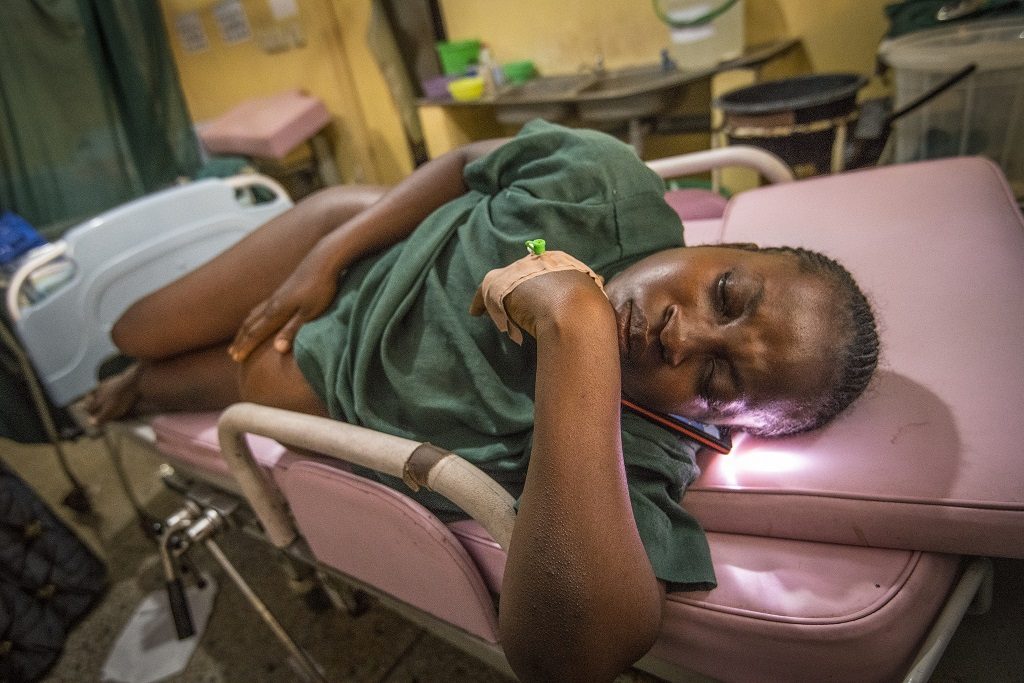
In nearby Kogi State, 27-year-old Blessing Oji was in labor with her third child for six hours. Fortunately, Oji had two types of support during her long labor: prayers via phone from her faith community; and the peace of mind knowing that she was being cared for by MCSP-trained nurses and midwives.
MCSP directly supports 169 facilities in Kogi State, six of which are faith-based. As in Ebonyi State, most of these now offer family planning thanks to MCSP training and materials, a significant achievement given that family planning is not always accepted at faith-based institutions. The Program also updated the knowledge and skills of staff related to essential newborn care, CEmONC, obstetric and newborn care, respectful maternity care, and use of data for decision making.
As a result, staff at all six mission hospitals are now successfully employing their new lifesaving skills: resuscitating newborns; using chlorhexidine for cord care; encouraging Kangaroo Mother Care; performing manual removal of placenta; and managing eclampsia. This higher quality care will be sustained going forward, as well, thanks to scorecards introduced by MCSP, and consistent tracking by more than two dozen reproductive, maternal, newborn, child and adolescent health indicators, including immunization.
The scorecard presents a few pressing indicators on a single page in an easy-to use dashboard. With status in three colors – red for “underperforming,” yellow for “fair but on track,” and green for “performing well” – it enables busy health managers to assess performance at a glance.
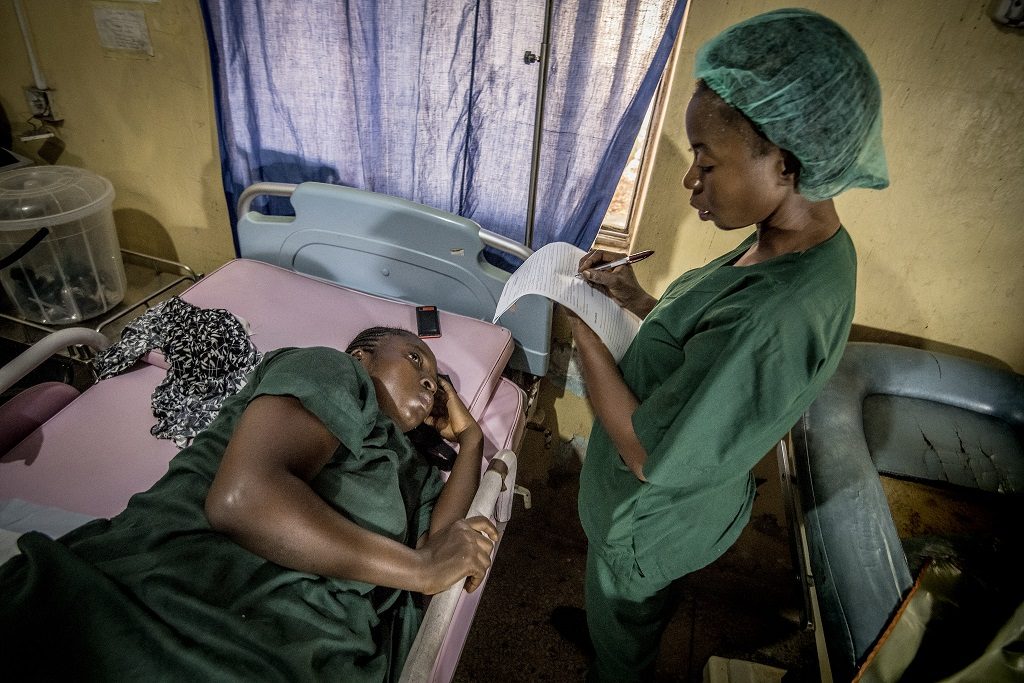
Half of Kogi State’s MCSP-support mission hospitals also have pre-service institutions for nurses and midwives. These four institutions have been equipped by MCSP with anatomical models and audiovisual aids, and the Program provided effective teaching skills training to their tutors. As a result, training at these institutions now meets the requisite minimum national standards and is producing graduates who provide higher-quality services on the job.
Above, Cecilia Nadi, a midwife in Kogi State, was trained by MCSP on how to use a partograph to monitor labor progress. Improved partograph knowledge is an integral part of MCSP’s maternal, newborn and child health training for Nigerian health care workers, which also includes: management of pre-eclampsia/eclampsia; manual removal of the placenta; prevention, diagnosis and treatment of postpartum hemorrhage; and newborn resuscitation.
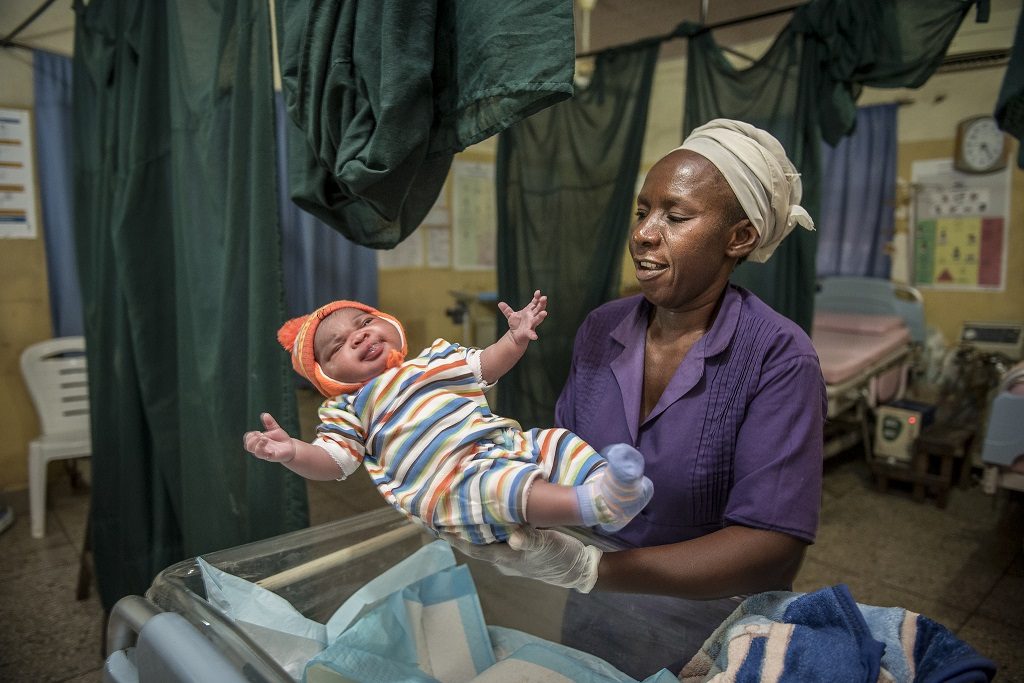
Blessing Malik, a ward attendant at a hospital in Kogi State, cleans and dresses a newborn after birth before placing him in his cot. As a ward attendant, Orji assists MCSP-trained nurses and midwives, and is responsible for cleaning the labor room before and after deliveries.
In all, more than 1,500 health care workers from 321 facilities have improved their maternal and newborn health knowledge and skills in Ebonyi and Kogi states thanks to MCSP pre-service and in-service education programs. FBO facility networks and service providers are amplifying these efforts – extending our reach deep into Nigerian communities to give all mothers and children access to the services that prevent needless deaths.
